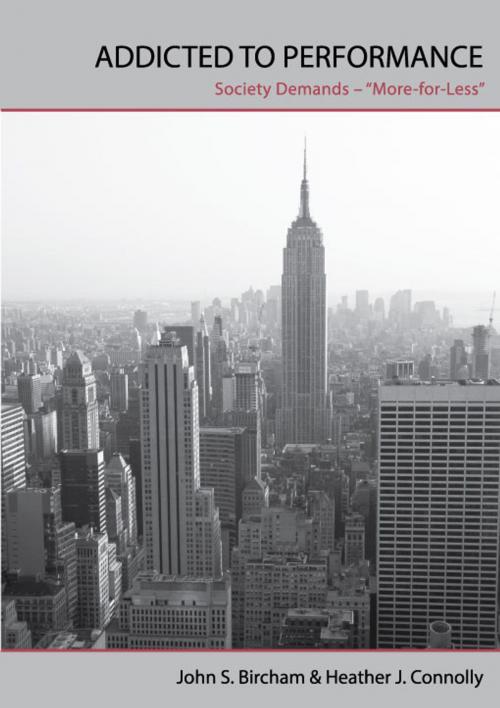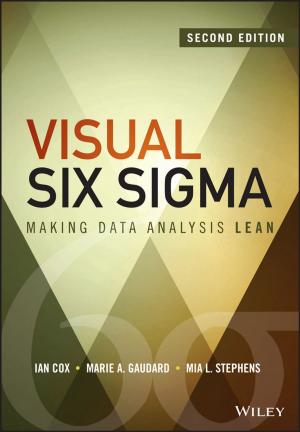Addicted To Performance - Society Demands "More-for-Less"
Business & Finance, Management & Leadership, Production & Operations Management, Leadership, Management| Author: | John S. Bircham, Heather J. Connolly | ISBN: | 9780473241735 |
| Publisher: | Bircham-Global Publishing Limited | Publication: | April 18, 2013 |
| Imprint: | Language: | English |
| Author: | John S. Bircham, Heather J. Connolly |
| ISBN: | 9780473241735 |
| Publisher: | Bircham-Global Publishing Limited |
| Publication: | April 18, 2013 |
| Imprint: | |
| Language: | English |
Take a journey down into the inner-workings of organizations as they strive to meet the addiction-fuelled expectations of their stakeholders - what they do and what they don't do. Moveover, don't just look through the eyes of success, but look also through the eyes of failure and learn, both from what you see and from what you don't see.
This is what the authors do in "Addicted To Performance" as they explore what was going on inside a few organizations prior to the occurrence of a major accident, catastrophe or disaster. They wanted to know what the leaders were thinking and what the workforce was doing or for that matter, not doing.
Was there evidence of pressure being exerted on the organizations in some way?
Did the activities of leadership or the organization's culture, shape or nurture, maybe even create, the environments from which these accidents, catastrophes and disasters emerged?
As the story unfolds, the plight of modern-day organizations becomes more and more apparent. They are trapped in the pursuit of the efficiencies necessary to satisfy society's addiction to "more-for-less." Their leaders, as society's proxies, are seemingly unable or unwillingly to do anything, except follow the herd.
They too, it seems, are trapped. Furthermore, there is no direct or guaranteed way to escape this trap and simply emulating what others have done or are doing will not be enough!
The authors have no ready-made solutions or formulas for securing your organization's future. Rather, their objective is to provoke you into thinking about things a little more and to enhance your understanding of the likely consequences of sustained pressure for greater performance; what will happen and maybe even how it will happen. And if the authors were to suggest a way forward, it would be to broaden your perspectives and to encourage you to explore other ways of doing things, because there are alternatives to simply following the herd.
Take a journey down into the inner-workings of organizations as they strive to meet the addiction-fuelled expectations of their stakeholders - what they do and what they don't do. Moveover, don't just look through the eyes of success, but look also through the eyes of failure and learn, both from what you see and from what you don't see.
This is what the authors do in "Addicted To Performance" as they explore what was going on inside a few organizations prior to the occurrence of a major accident, catastrophe or disaster. They wanted to know what the leaders were thinking and what the workforce was doing or for that matter, not doing.
Was there evidence of pressure being exerted on the organizations in some way?
Did the activities of leadership or the organization's culture, shape or nurture, maybe even create, the environments from which these accidents, catastrophes and disasters emerged?
As the story unfolds, the plight of modern-day organizations becomes more and more apparent. They are trapped in the pursuit of the efficiencies necessary to satisfy society's addiction to "more-for-less." Their leaders, as society's proxies, are seemingly unable or unwillingly to do anything, except follow the herd.
They too, it seems, are trapped. Furthermore, there is no direct or guaranteed way to escape this trap and simply emulating what others have done or are doing will not be enough!
The authors have no ready-made solutions or formulas for securing your organization's future. Rather, their objective is to provoke you into thinking about things a little more and to enhance your understanding of the likely consequences of sustained pressure for greater performance; what will happen and maybe even how it will happen. And if the authors were to suggest a way forward, it would be to broaden your perspectives and to encourage you to explore other ways of doing things, because there are alternatives to simply following the herd.















